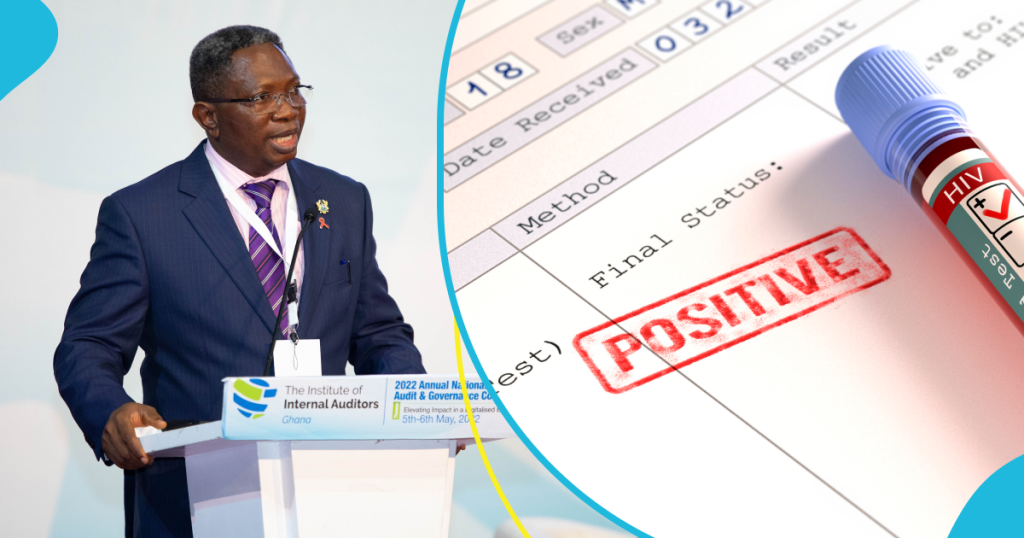Data released from the 2023 national and regional Human Immunodeficiency Virus(HIV) and Acquired Immune Deficiency Syndrome(AIDS) estimates and projections revealed that 17,774 individuals—6,457 males and 11,317 females—contracted HIV during the year.
Among them were 4,869 young people aged 15-24, 1,698 children under 15, 1,520 adolescents aged 10-19, and 16,076 adults over age 15.
Dr Kyeremeh Atuahene, Director General of the Ghana AIDS Commission, announced these figures in Accra on Wednesday. He noted a 14.8% reduction in new infections from 2013 to 2023.
“The data indicates that Ghana has not been able to achieve its annual target of a 17% reduction in new HIV infections in the last ten years,” he said.
Dr Atuahene highlighted Ghana’s projected 41% reduction in new HIV infections expected from 2023 to 2030.

In 2023, Ghana recorded 334,095 people living with HIV—comprising 115,891 males and 218,204 females. Among them were 17,550 children under 14, 16,381 adolescents aged 10-19, 33,245 young adults aged 15-24, and 316,545 adults aged 15 and above.
Over the decade from 2013 to 2023, the HIV population increased by 9%, with a projected 6.8% increase expected by 2030. In 2023 alone, 12,480 Ghanaians died from AIDS-related illnesses.
Dr. Atuahene lamented that despite the availability of life-saving treatments, AIDS-related deaths continued to increase. He stressed Ghana’s commitment, alongside global efforts, to achieve the 95-95-95 targets by 2025—ensuring 95% of people living with the virus know their status, 95% receive antiretroviral therapy (ART), and 95% achieve viral suppression.
As of 2023, Ghana had achieved 65.3% awareness among those with HIV, 69.4% ART coverage, and 89.0% knowledge of status among those receiving ART.
Highlighting that most infections occur among the economically active age group of 15-49, Dr. Atuahene called for collective action to halt the AIDS epidemic in Ghana.


